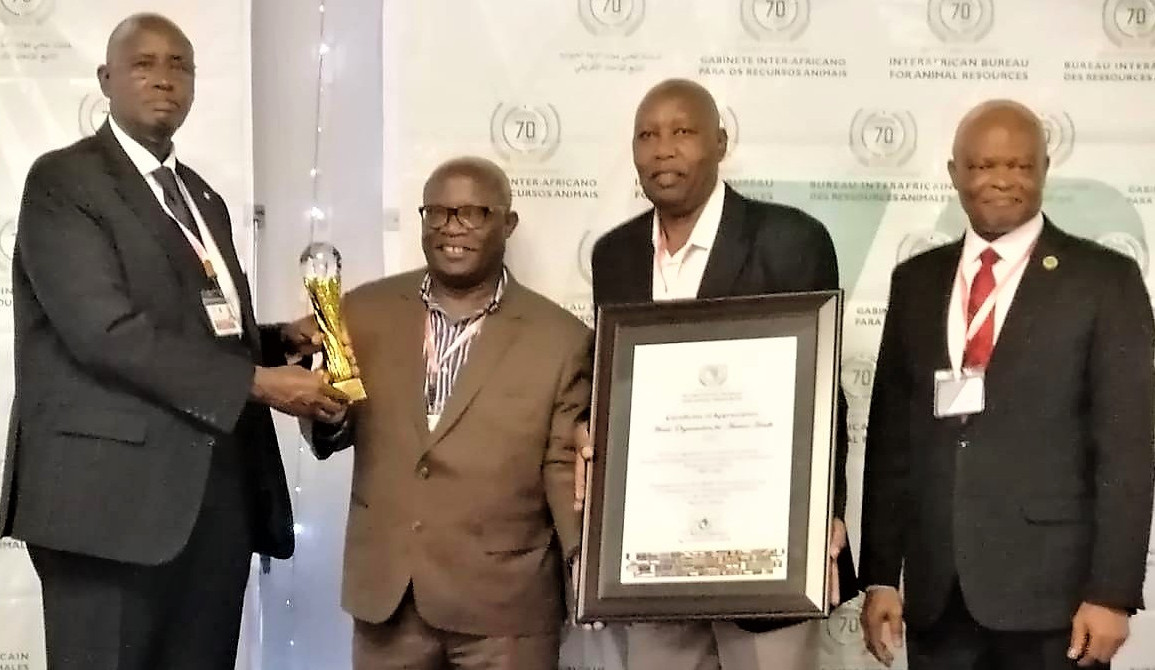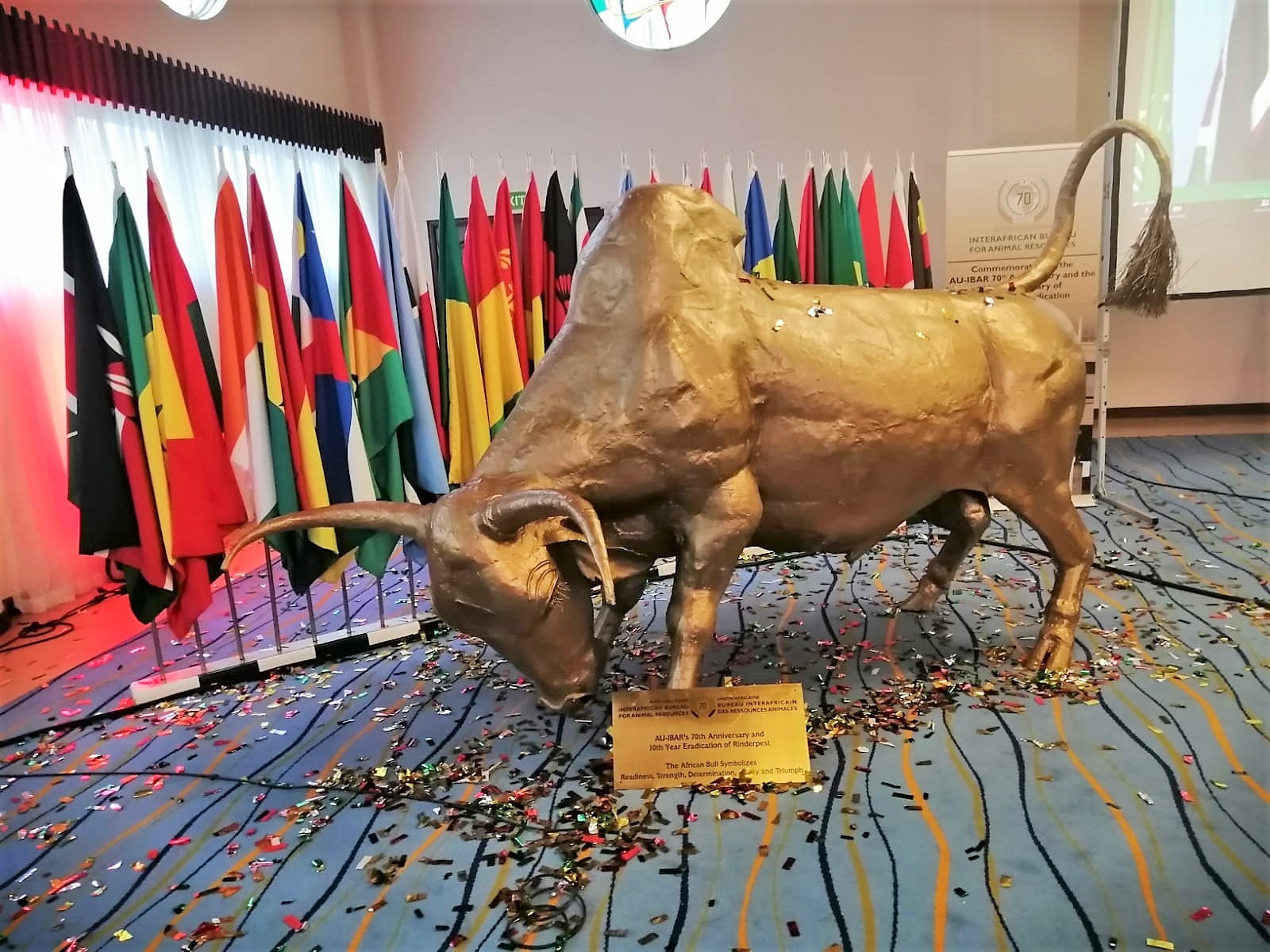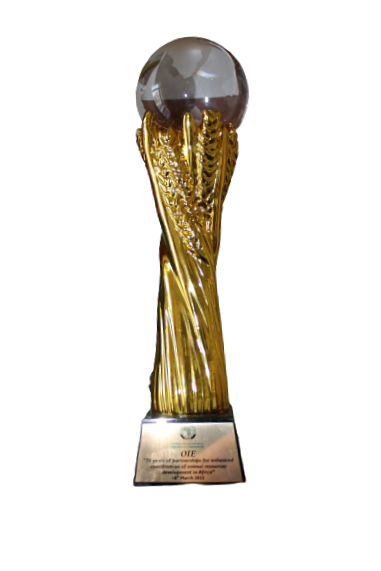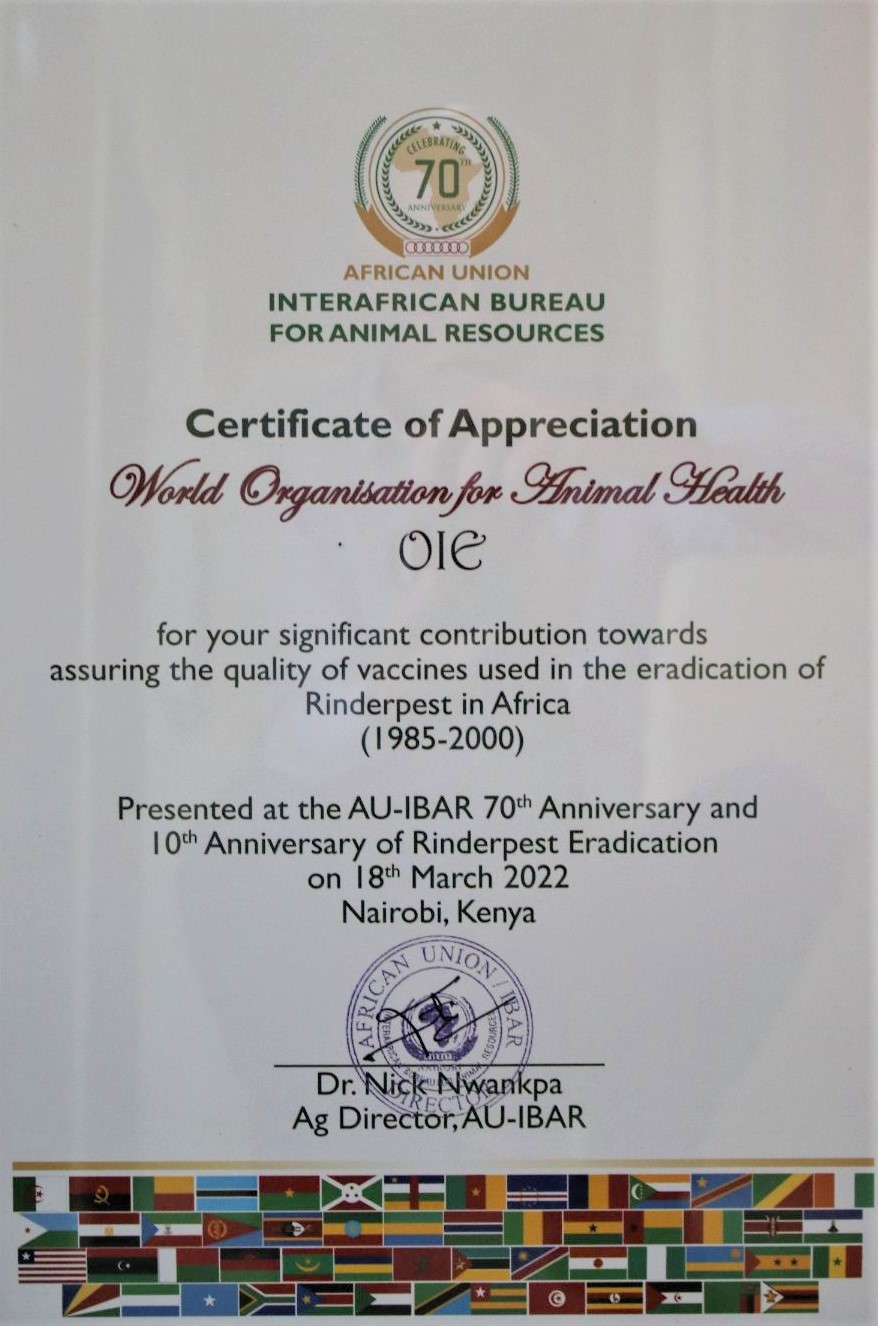At the occasion of the 70th anniversary of the Interafrican Bureau for Animal Resources (IBAR) of the African Union (and previously the Organisation of African Unity, OAU), held in Nairobi, Kenya on 18 March 2022, the representatives of the OIE, Drs Samuel Wakhusama and Simon Kihu, received the recognition of the African Union for OIE’s contribution to the eradication of rinderpest from the African continent, and a few years later, from the planet, as endorsed by the governing bodies of OIE and FAO in 2011.
At the occasion of this celebration, the OIE Director-General delivered a recorded good-will message, the text of which is copied below.
Picture (c) S. S. Kihu (oie) 2022
President of the Republic of Kenya, Mheshimiwa Raïs Uhuru Kenyatta,
Chairperson of the African Union Commission, H.E. Moussa Faki Mahamat, bonjour,
Commissioner for Agriculture, Rural Development, Blue Economy and Sustainable Environment, H.E. Ambassador Josefa Sacko, bom dia,
Acting Director of the African Union Inter-African Bureau for Animal Resources, and Director of the Pan-African Veterinary Vaccine Centre, Dr Nick Nwankpa, good day,
Honourable Ministers and Members of Parliament of African member countries,
OIE Delegates and Chief Veterinary Officers of African member countries,
Representatives of regional economic communities and technical and financial partners,
Honourable guests,
Colleagues,
I will start by apologising not being able to participate in this memorable event in person and I hope you will accept this short-recorded statement as a humble, but nonetheless well-meaning and sincere expression of my gratitude for association the World Organisation for Animal Health to this event.
Ladies and gentlemen, what brings us together today is the celebration of 70 years of IBAR’s work on animal health and production, including fisheries on the African continent and it’s surrounding territorial waters. Happy birthday indeed !
A good opportunity to look back to what has been achieved, for instance the eradication of rinderpest, and look hopeful towards the future and the opportunity to eradicate another devastating disease of livestock in the next decade, peste des petits ruminants or PPR.
Let us not forget that just as for IBAR, rinderpest has been at the very origin of the World Organisation for Animal Health as well. It is as the direct result of an incursion of rinderpest in zebu cattle offloaded from a ship in the port of Antwerp in Belgium, that a core group of countries established the -then- Office International des Epizooties or OIE, today the World Organisation for Animal Health.
Numerous times have our paths crossed, working side-by-side for part of the voyage, sometimes lasting decades, under such rinderpest-dedicated projects and programmes as JP-15, PARC and PACE, but also on more broader subjects such as veterinary good governance, veterinary legislation, and more recently on matters of continental animal health strategies, animal welfare strategies and indeed continental strategies against African swine fever and PPR.
Dr Monique Eloit, Director General of the OIE
And this is our next big challenge ! But we know we can do it before we’ve done it before ! PPR can be wiped off the face of this earth, just like rinderpest. But is takes commitment by the international community, represented here mainly by the World Organisation for Animal Health and the Food and Agriculture Organisation, by regional economic communities, under the leadership of the African Union, and national governments, down to the smallholders who actually care for these sheep and goats.
Besides the financial commitments made by each and every government, we also need our financial partners to come on board. Getting rid of PPR is a global public good, for the current generation and for generations to come. I’m excited by the prospect that the European Union has already shown great interest and commitment to engage with the African Union on this voyage.
Your excellencies, I couldn’t be more thrilled by the prospect that the African Union, through IBAR is taking up this challenge of coordinating the eradication efforts on the African continent, bringing together governments, the veterinary private sector, regional and international technical agencies, research, the pharmaceutical industry and incentivise farmers to deal with PPR once and for all.
My organisation, as one of the international technical agencies, along with for instance FAO through our long standing coordination mechanism, but also the International Atomic Energy Agency in Vienna, avails itself to assist and help the African Union achieve its goals, through the various instruments and tools that it has developed over time to guide implementation and monitor implementation, of – let us be clear – what is essentially mass- or strategic vaccination campaigns, using highly effective and highly affordable vaccines that offer life-long protection. Our vaccine bank for PPR vaccines is there to assist countries in engaging in the fight against this disease and three new pre-qualified vaccine suppliers have just recently been identified and selected for the next 5 years.
In closing, your excellencies, allow me to direct some words to the Director of AU-IBAR : dear Nick, congratulations on this 70th anniversary, congratulations for a world free of rinderpest for nearly eleven years now, ever since the official declaration of the eradication in May 2011, your leadership as the President of the Global framework for the progressive control of transboundary animal diseases for Africa, and finally congratulations for the launch of the Pan-African Programme for the Prevention, Control and Eradication of PPR 2022 – 2026. Through our cooperation guided by the OIE -IBAR Agreement that was renewed in 2015, we stand by you, to achieve our goals by 2030 latest.




